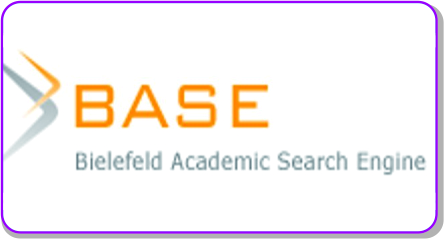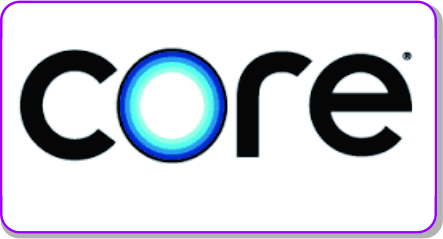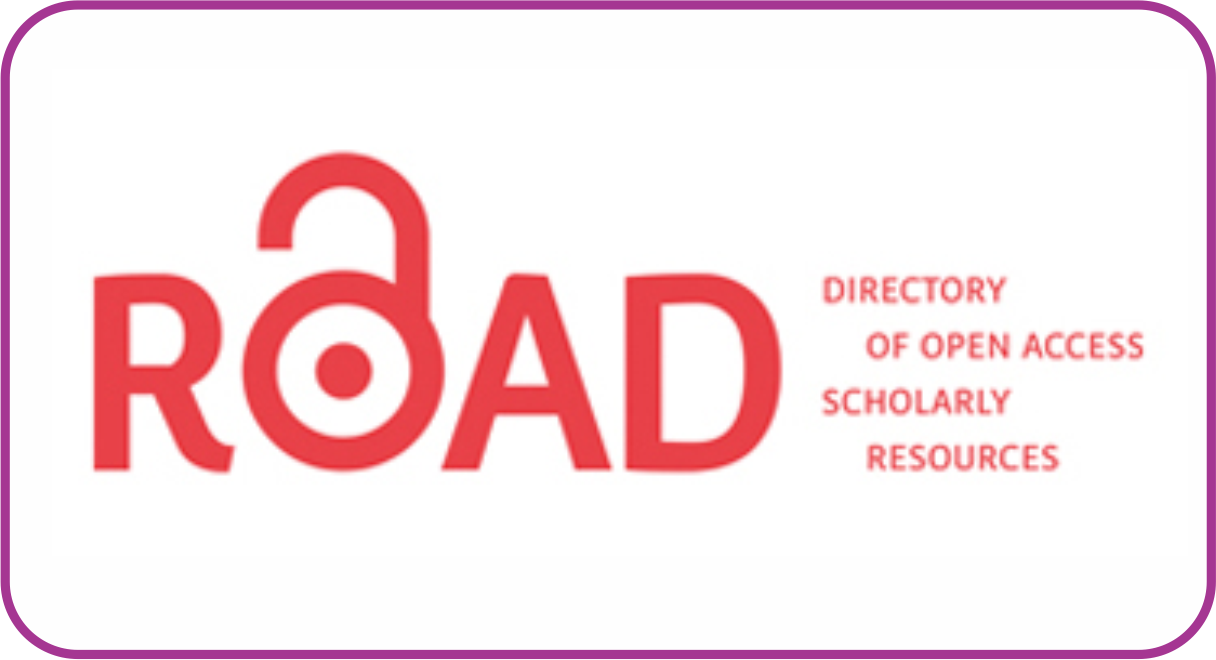EFL Student’s Perception of MALL for Pronunciation Proficiency
DOI:
https://doi.org/10.30983/educative.v8i1.6213Keywords:
Mobile Assisted-Language Learning, Perception, Pronunciation ProficiencyAbstract
Mobile Assisted Language Learning (MALL) greatly influences the success of pronunciation proficiency. Several previous studies have been conducted on the positive effect of MALL on Increasing pronunciation proficiency. however, the students' perceptions of MALL in increasing pronunciation proficiency are rare. Therefore, it is necessary to investigate the perception of using the teaching technological tool. This study used a survey research design. Sixty-nine English students at one Islamic higher education institution in Jambi, Indonesia voluntarily participated in this study. Data from participants were collected using questionnaires and then analyzed using SPSS 26. The research results showed that there was a statistically significant difference in perception of the usefulness of MALL, but no statistically significant difference in perception of the ease of MALL regarding gender. This means that the results indicated that the students positively perceive MALL in the process of teaching and learning.
References
Book
Cook, Vivian, Second language learning and language teaching. 5th edition (Routledge, NY: Taylor & Francis Group, 2016).
Kriedler, Charles W., The pronunciation of English: A Course Book. Second edition (UK: Blackwell Publishing, 2004)
Journal
Arashnia, Maryam, and Mohsen Shahrokhi, 'Mobile Assisted Language Learning: English Pronunciation among Iranian Pre-intermediate EFL Learners', Journal of Applied Linguistics and Language Research, 3.4 (2016), 149-162. <https://www.jallr.com/index.php/JALLR/article/download/334/pdf334>
Azli, Wan Ummu Aiman Wan, Parilah Mohd Shah, and Maslawati Mohamad, 'Perception on the Usage of Mobile Assisted Language Learning (MALL) in English as a Second Language (ESL) Learning among Vocational College Students', Creative Education, 9.1 (2018), 84-98.
Creswell, John W., 'Educational Research: Planning, Conducting, And Evaluating Quantitative, Prentice Hall Upper Saddle River, NJ, 7 (2002). <http://repository.unmas.ac.id/medias/journal/EBK-00121.pdf>
Davis, Fred D., 'User Acceptance Of Information Technology: System Characteristics, User Perceptions And Behavioral Impacts. International journal of man-machine studies, 38.3 (1993), 475-487. <https://doi.org/10.1006/imms.1993.1022>
Fraser, Helen, 'ESL Pronunciation Teaching: Could it be more effective?', Australian Language Matters, 7.4 (1999), 7-8. <http://walktalkteach.com.au/images/images/documents/PronunciationpaperbyHelenFraser.pdf>
GhouNane, Nadia, 'The Attitudes of Second Year EFL Students at Dr Moulay Tahar University towards Learning English Pronunciation through Mobile Assisted Language', Arab World English Journal (AWEJ) Special Issue on CALL, 5 (2019), 1-14. <http://dx.doi.org/10.2139/ssrn.3431753>
Gilakjani, Abbas Pourhosein and Lahijan Branch, ‘English Pronunciation Instruction: A Literature Riview’, International Journal of Research in English Education, 1.1 (2016), 1-6 <https://www.sid.ir/paper/349607/en#downloadbottom>
Howlett, Graham, and Zainee, Waemusa, ‘21st Century Learning Skills And Autonomy: Students’perceptions Of Mobile Devices In The Thai Efl Context’, Teaching English with Technology, 19.1, (2019), 72-85. <https://www.ceeol.com/search/article-detail?id=737375>
Joseph, Samuel R.H and Maria Uther, ‘Mobile Devices for Language Learning: Multimedia Approaches’, Research and Practice in Technology Enhanced Learning, 4.1 (2009), 7–32. <https://doi.org/10.1142/S179320680900060X>
Klopfer, Eric, Squire K.urt, and Henry, 'Environmental detectives: PDAs as a window into a virtual simulated world. In Proceedings’, IEEE international workshop on wireless and mobile technologies in education, (2002), 95-98.
Kukulska-Hulme, Agnes, 'Re-skilling Language Learners for a Mobile World', The International Research Foundation for English Language Education. (2013), 1-16. <https://www.tirfonline.org/english-in-the-workforce/mobile-assisted-language-learning>
Kukulska-Hulme, Agnes, and Lesley Shield, ‘An Overview of Mobile Assisted Language Learning: From Content Delivery to Supported Collaboration and Interaction’, ReCALL, 20.3 (2008), 271-289. <https://doi.org/10.1017/S0958344008000335>
Kwangsawad, Thooptong, ‘University Students’ Perceptions of MALL in EFL Classes’, Studies in English Language Teaching, 7.1 (2019), 75-82.
Levis, John, 'Computer Technology In Teaching And Researching Pronunciation', Annual Review of Applied Linguistics, 27 (2007), 184-202. <https://doi.org/10.1017/S0267190508070098>
Loewen, Shawn, Dustin Crowther, Dan Isbell, Kathy Minhye Kim, Jeffrey Scott Maloney, Zachary F Miller and Hima Rawal, 'Mobile-assisted language learning: A Duolingo case study', The Journal of the European Association for Computer Assisted Language Learning, 31.3 (2019), 293-311. DOI: <https://doi.org/10.1017/S0958344019000065>
Lord, Gillian, ‘Podcasting Communities and Second Language pronunciation’, Foreign Language Annals, 41.2 (2008), 364-379. <https://doi.org/10.1111/j.1944-9720.2008.tb03297.x>
Naismith, Laura, Mike Sharples, Giasemi N. Vavoula and Peter Lonsdale, M. 'Literature Review in Mobile Technologies and Learning', Future Lab Series, 11 (2004), <https://edineidepaes.wordpress.com/author/edineidepaes/>
Pachler, Norbert, John Cook and Ben Bachmair, ‘Appropriation of Mobile Cultural Resources for Learning’, International Journal of Mobile Blended Learning, 2.1 (2010) 1-21. <https://doi.org/10.4018/jmbl.2010010101>
Rosell-Aguilar, Fernando, ‘Autonomous language learning through a mobile application: a user evaluation of the busuu app’, Computer Assisted Language Learning, 31.8 (2018), 854-881. <https://doi.org/10.1080/09588221.2018.1456465>
Saidouni, Khawla and Amel Bahloul, 'Teachers and Students’ Attitudes Towards Using Mobile-Assisted Language Learning In Higher Education', Arab World English Journal (AWEJ) Special Issue on CALL, 3 (2016), 1-18. <http://dx.doi.org/10.2139/ssrn.2822983>
Saran, Murat, and Gölge Seferoğlu, ‘Supporting Foreign Language Vocabulary Learning Through Multimedia Messages Via Mobile Phones’, Hacettepe University Journal of Education, 38.3 (2010), 252-266. <https://hdl.handle.net/11511/53281>
Saran, Murat, Golge Seferoglu and Kursat Cagıltay, 'Mobile Assisted Language Learning: English Pronunciation at Learners' Fingertips', Eurasian Journal of Educational Research, 34 (2009), 97-114. <http://hdl.handle.net/20.500.12416/944>
Seferoğlu, Gölge, 'Improving students’ pronunciation through accent reduction software', British Journal of Educational Technology, 36.2 (2005), 303-316. <https://doi.org/10.1111/j.1467-8535.2005.00459.x>
Traxler, John, 'Learning in a Mobile Age', International Journal of Mobile and Blended Learning, 1 (2009), 1-12. <https://doi.org/10.4018/jmbl.2009010101>
Wu, Wen-Hisiung., Yen-Chun Jin Wu, Chun-Yu Chen., Hao-Yun Kao, Che-Hung Lin, and Sih-Han Huang, ‘Review of trends from mobile learning studies: A meta-analysis’, Computers & education, 59.2 (2012), 817-827. <https://doi.org/10.1016/j.compedu.2012.03.016>
Yudhiantara, Rully Agung and Andang Saehu, 'Mobile-Assisted Language Learning (MALL) in Indonesian Islamic Higher Education', Indonesian Journal of English Language Teaching and Applied Linguistics, 2.1 (2017), 21-31. <http://dx.doi.org/10.21093/ijeltal.v2i1.52>
Disertations and Thesis
Al-Zahrani, Anwer. S. ‘Smartphones Wandering at the Mall: A Case Study Investigating the Use of Smartphones on English Oral Learning in a Collaborative Mobile-Assisted Language Learning Environtment’, (Dissertation or Thesis - Northern Illinois University, 2015).
Liao, Hui-Chuan, 'Effects Of Cooperative Learning On Motivation, Learning Strategy Utilization, And Grammar Achievement Of English Language Learners In Taiwan’, (Doctoral dissertation, University of New Orleans, 2005).
Varasarin, Patchara, 'An Action Research Study Of Pronunciation Training, Language Learning Strategies and Speaking Confidence’, (Doctoral Dissertation, Victoria University, 2007).
Downloads
Submitted
Accepted
Published
Issue
Section
License
Authors who publish with this journal agree to the following terms:
1. Authors retain copyright and grant the journal right of first publication with the work simultaneously licensed under a Creative Commons Attribution License that allows others to share the work with an acknowledgment of the work's authorship and initial publication in this journal.
2. Authors are able to enter into separate, additional contractual arrangements for the non-exclusive distribution of the journal's published version of the work (e.g., post it to an institutional repository or publish it in a book), with an acknowledgment of its initial publication in this journal.
3. Authors are permitted and encouraged to post their work online (e.g., in institutional repositories or on their website) prior to and during the submission process, as it can lead to productive exchanges, as well as earlier and greater citation of published work (See The Effect of Open Access).

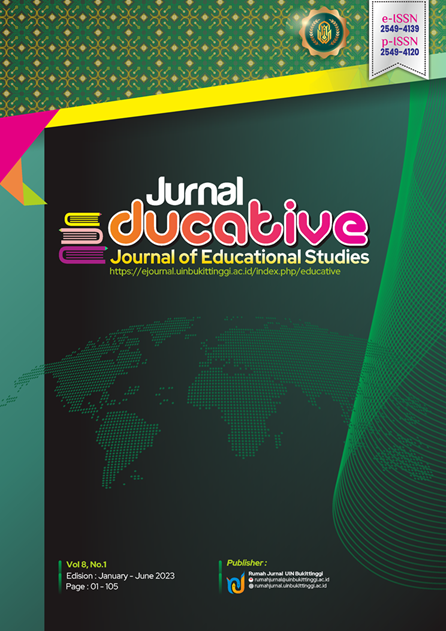



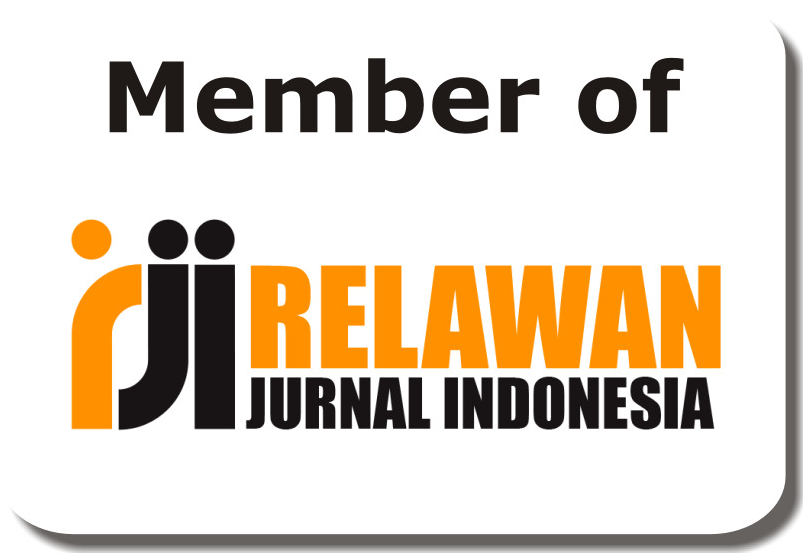












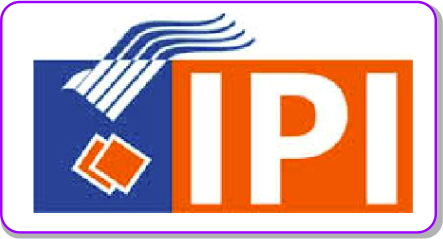 Â
 
